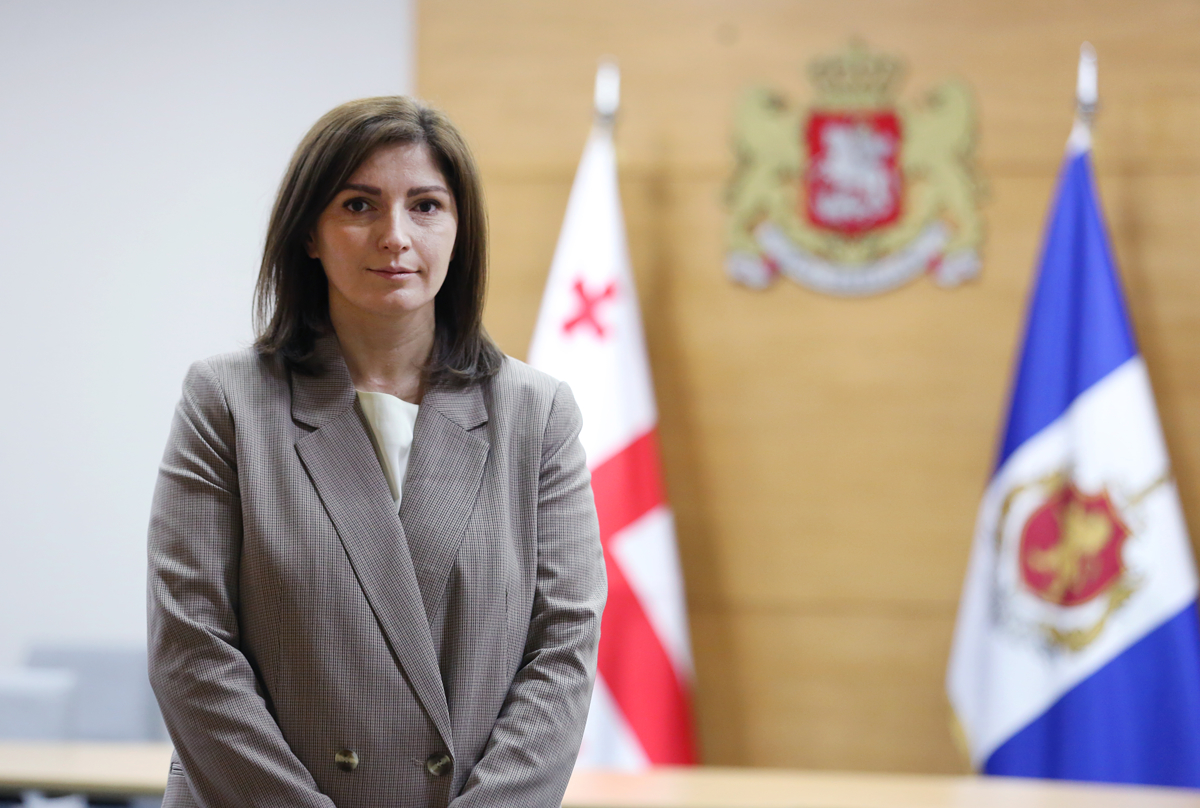Police training improves response to violence against women in Georgia
Date:

When they interviewed her, a 17-year-old girl was sitting in an armchair, not making eye contact with anyone, recalls Gvantsa Gogava, a detective who investigates domestic violence against juveniles in Georgia.
“When she talked about the perpetrator, who was a family member, she did not use a word for human beings; rather, she used a word for a soulless creature,” recounts Gogava. An experienced investigator, Gogava is used to talking to women and girls suffering from violence, and so she knew gaining her trust was fundamental.
“I told her, ‘we believe you.’ That was the milestone that made her feel free,” notes Gogava. “Once she felt she could trust us, her body language changed, she made eye contact.”
For a decade, this teenage girl had been repeatedly raped by her own family member. She decided to report him because her younger sister was turning the age she had been when the rapes and sexual assault began.
Preventing and stopping assault, rape and other crimes against women is one of the goals of the “Empowering Community for Gender Equality” project, being implemented by the Network of Centers for Civic Engagement (NCCE) under “EU4GenderEquality: Together Against Gender Stereotypes and Gender-Based Violence”, a European Union-funded programme implemented by UN Women and the United Nations Population Fund across six countries.
By enhancing police officers’ knowledge of the best ways to handle gender-based violence, the programme seeks to protect more women and girls.
In the spring of 2021, 74 police officers (52 men and 22 women) from the regions of Tbilisi, Imereti and Guria received NCCE training supported by the EU4GE project. The participants improved their comprehension of gender-based and domestic violence, alongside the importance of supporting victims and due diligence. Having broadened their knowledge of the legislation and its effective use, they now have the ability and knowledge to substantiate their actions with arguments from case law. The training also covered protocols for restraining orders and judicial decisions that impact casework related to gender-based violence.
“The training that we delivered aimed to increase the awareness, sensitivity and professionalism of the police officers working in the Ministry of Internal Affairs and those responsible for the prevention of and response to domestic violence,” explains Nina Khatiskatsi, the Executive Director of the NCCE. “During the training, police officers and investigators had the chance to discuss the practical difficulties associated with evidence-gathering and talk about the importance of community support in reporting domestic violence. It is very important that the Government and civil society work together to end gender-based and domestic violence.”
Such training stems from a partnership with the Department of Human Rights Protection and the Investigation Quality Monitoring of Georgia’s Ministry of Internal Affairs (MIA), which supervises the performance of police officers and investigators.
“The pandemic has not affected the quality of work related to combating domestic violence and violence against women. In partnership with the UN and international donors, MIA is offering us different training to enhance our qualifications to better serve the community,” states Gogava.
In addition to the police training, EU4GE is rolling out additional projects, like behaviour-correction programmes for perpetrators of violence in Georgia.
Often the first people to learn about cases of domestic violence, the police are uniquely placed at the frontlines to counter crime and correct harmful social norms.
In the case of the teenage girl who was raped, “the girl was blaming herself,” highlights Gogava. “She’d always worried what other people would think.”
Supporting law enforcement as they protect women is challenging, but the rewards are crystal clear. With the perpetrator in jail and the investigation almost over, Detective Gogava said the girl was studying again and even had a new hairstyle and look.
“It makes me happy when someone is safe – and saved,” says Gogava. “I have a 13-year-old daughter. I want girls to be safe from fear and violence and have a happy life.”